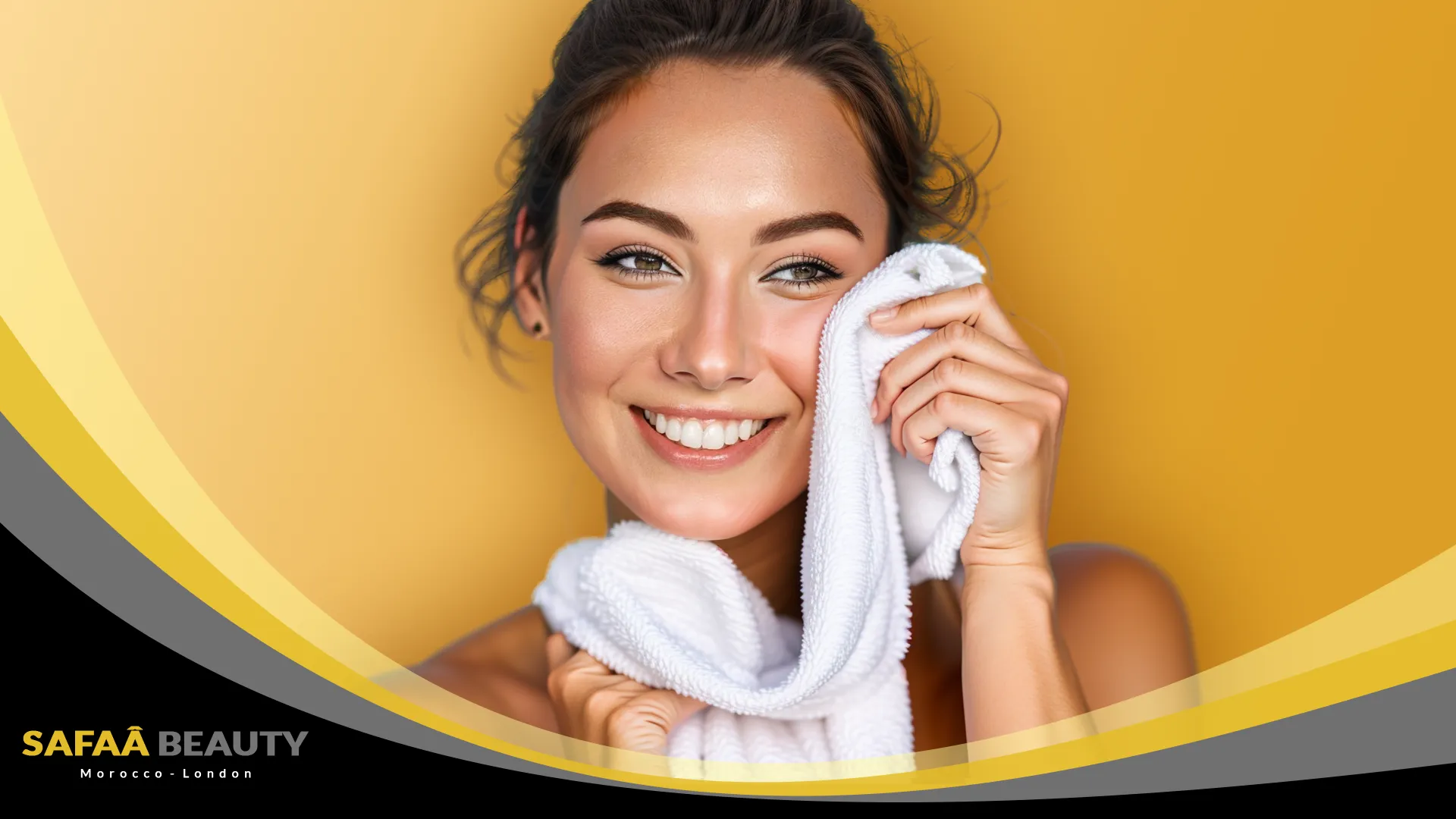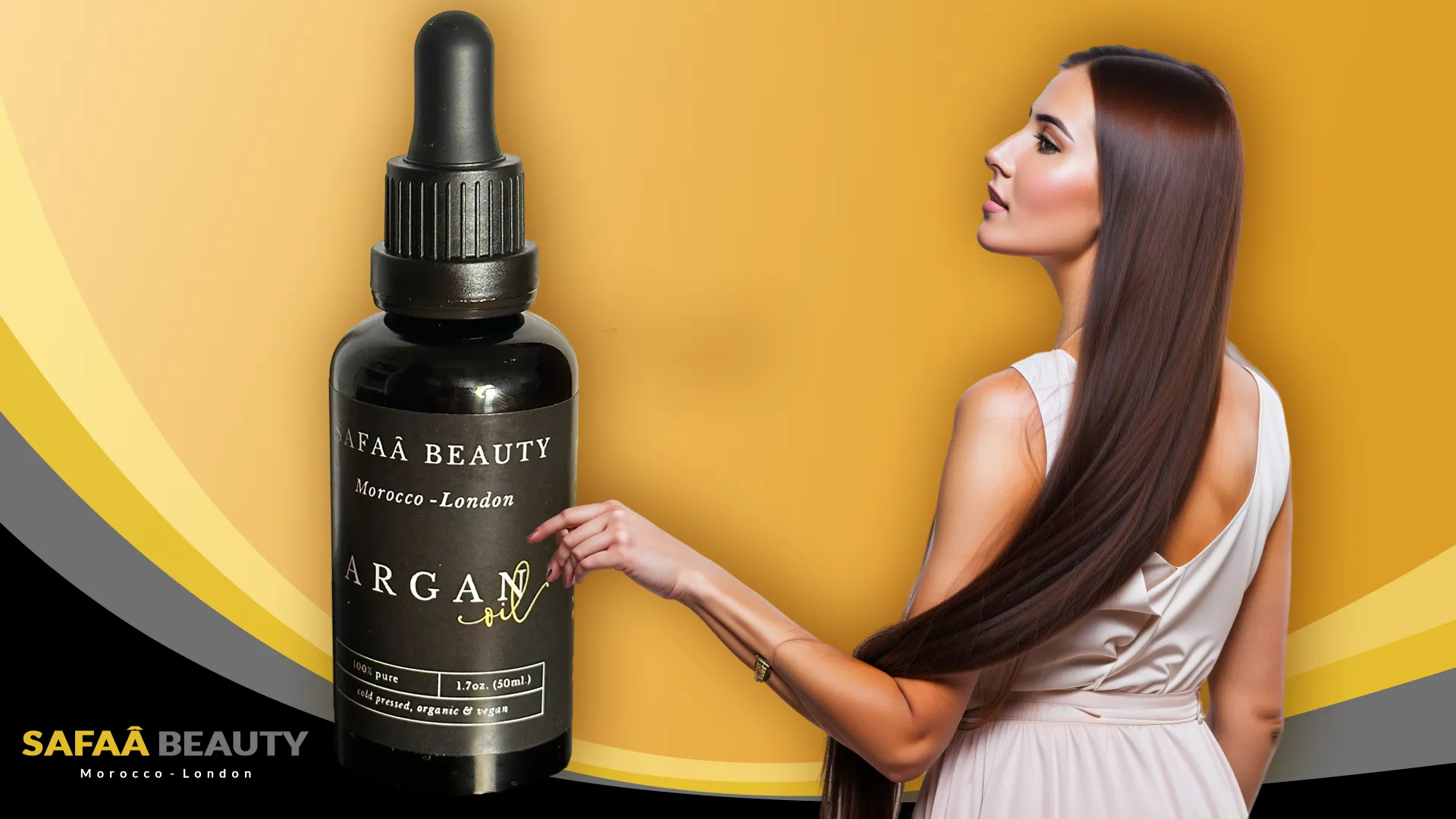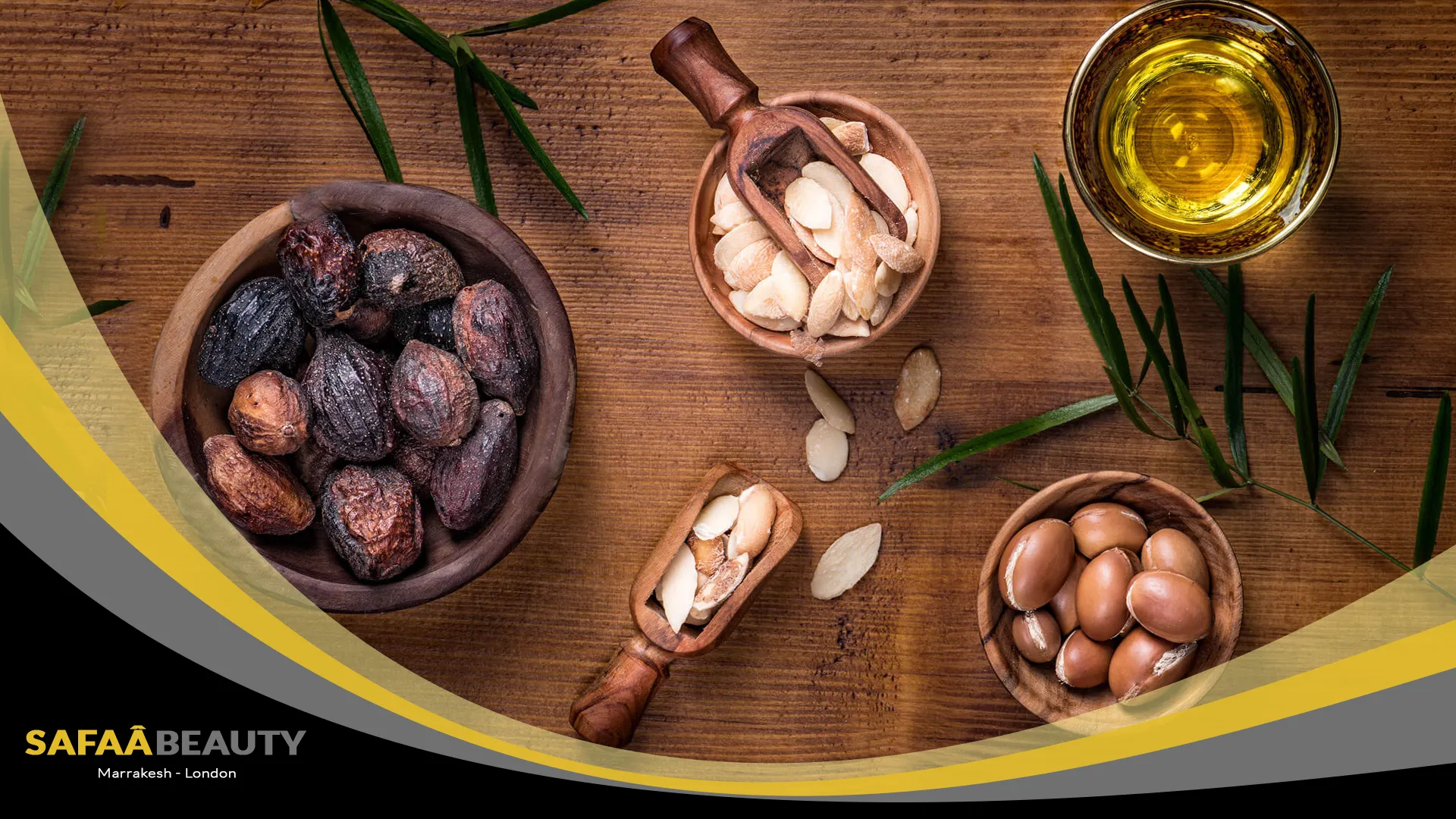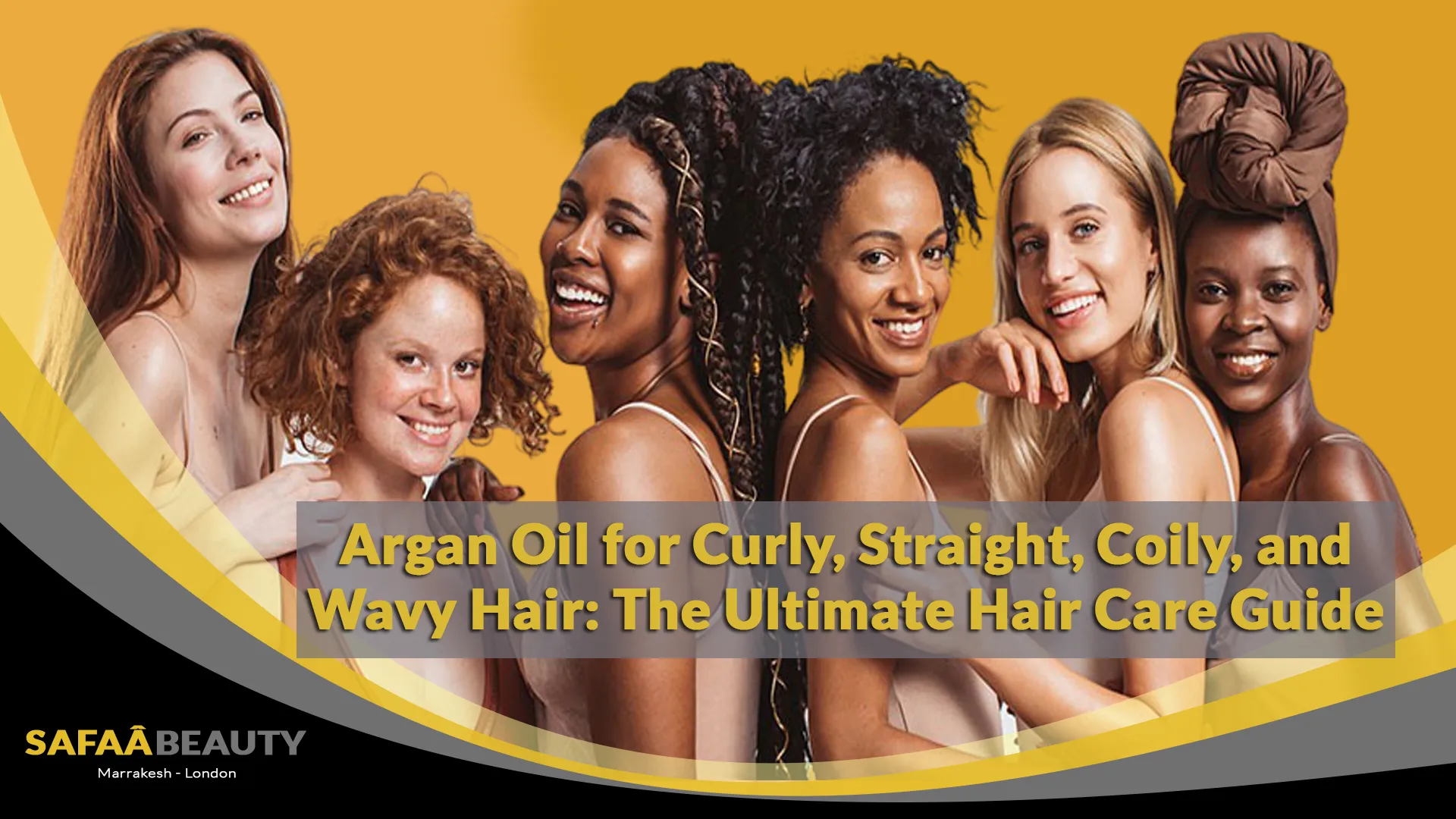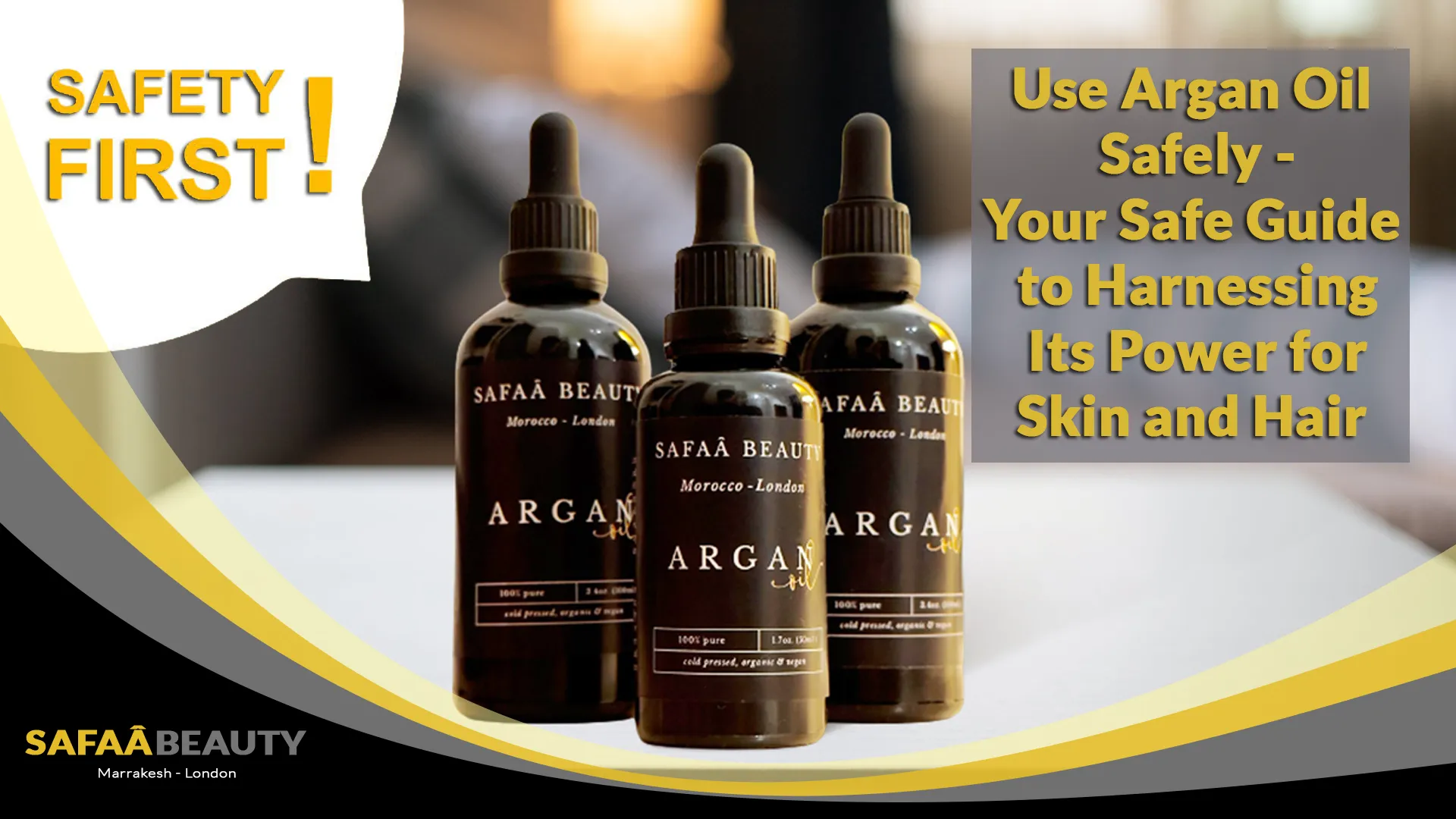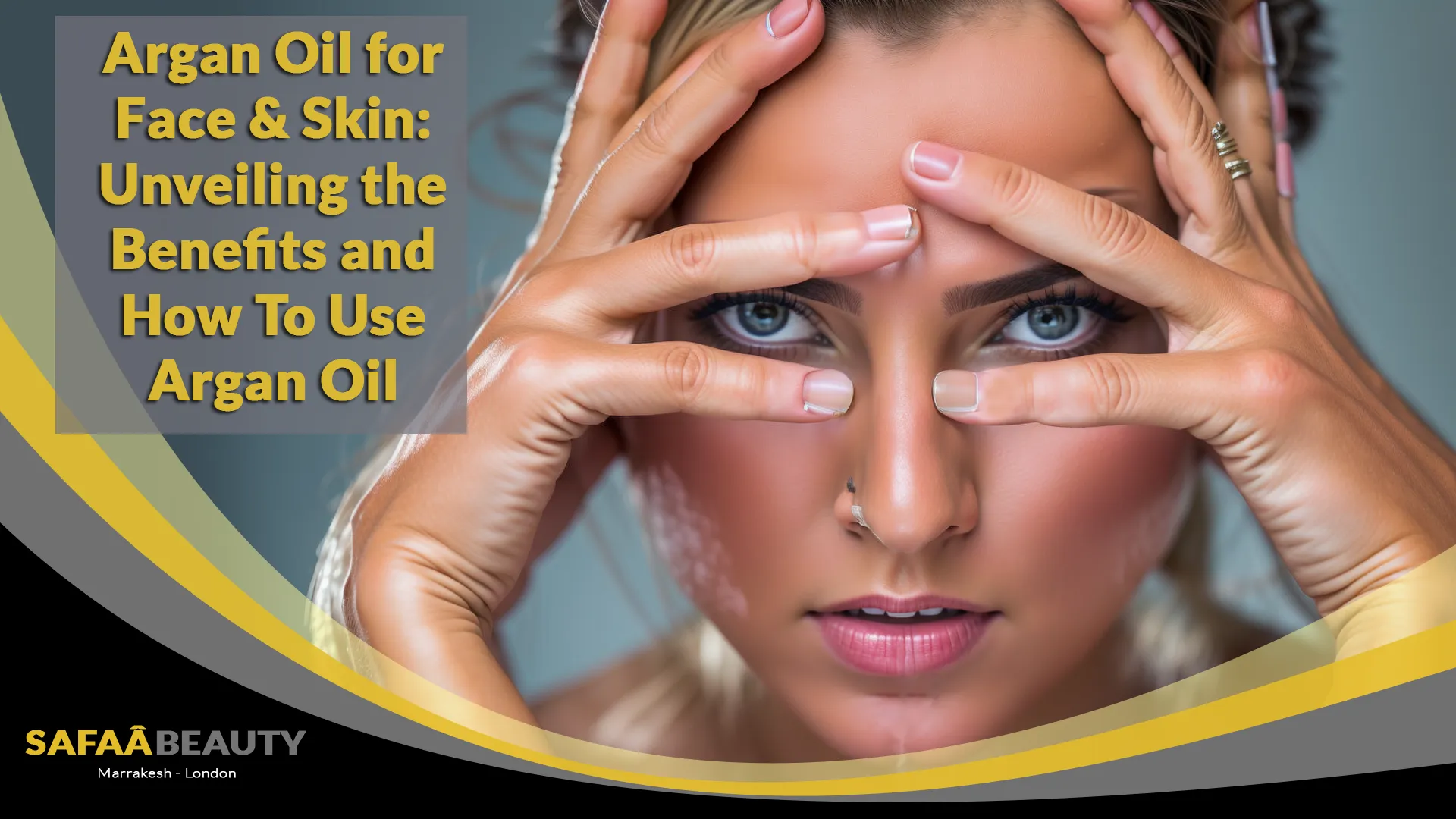Use Argan Oil Safely - Your Safe Guide to Harnessing Its Power for Skin and Hair
In the wide universe of skincare and haircare, Argan oil shines as a potent "liquid gold." However, like any dynamic substance, understanding how to use argan oil safely and correctly can make all the difference. This guide aims to illuminate the appropriate and safe usage of Argan oil for your face, hair, and overall skin health.
Make sure you buy the real deal; 100% authentic organic Argan Oil.

Content:
- Understanding Argan Oil: The Basics
- Safety First: Risks with Argan Oil?
- How to Use Argan Oil Safely: For Skin
- How to Use Argan Oil Safely: For Hair
- How to Choose and Use Argan Oil Products
- The Science Behind Argan Oil
- Argan Oil and Specific Conditions
- When Not to Use Argan Oil
- Safe Storage and Shelf-Life of Argan Oil
- Key Takeaways: Safe Usage of Argan Oil
Understanding Argan Oil: The Basics
The Moroccan Argan Tree
Originating from the argan tree in Morocco, Argan oil is a cherished traditional beauty secret. The oil is extracted from the kernels of this resilient tree. However, it's crucial to understand the difference between pure Argan oil and cosmetic Argan oil when planning to use it for skin or hair.
Pure Argan Oil vs. Cosmetic Argan Oil
Pure Argan oil, often edible, is made from roasted Argan tree kernels, while cosmetic Argan oil comes from unroasted kernels. Always opt for the cosmetic variety for skincare and haircare applications, as it's proven to be safe and effective for topical use.
Safety First: Risks with Argan Oil?
While Argan oil offers significant benefits, it's not without potential risks. It's rare but some people get an allergic reaction. So you have to check if you are allergic before you apply it.
Is Argan Oil Good for All Skin Types?
Numerous studies have established that Argan oil is generally considered safe for topical use. However, in some people, it may trigger contact dermatitis – an allergic reaction that includes symptoms such as a rash, redness, and itching in the application area.
For this reason, it's always best to do a test before using a cosmetic product that contains Argan oil. The easiest way to do this is to apply a drop on the skin of your forearm first. After 24 hours, if there's no sign of any reaction, it's safe to use your skincare product with argan oil on a larger area of skin.
Allergies and Argan Oil: What You Need to Know
Argan oil is a tree nut oil, so those with nut allergies should approach it with caution. Allergic reactions could include redness, rash, or itchiness. If you experience such symptoms, discontinue use and consult a healthcare professional.
How to Use Argan Oil Safely: For Skin
How and When to Apply Argan Oil on Your Face
If you're asking "Can I use Argan oil on my face?" the answer is yes! Argan oil can be used as a moisturizer and is generally safe to apply directly to your face and neck. However, because it's an oil, it's best used after water-based products and before creams. If used in the morning, always follow up with a broad-spectrum sunscreen.
Can You Use Argan Oil on the Body?
Absolutely! Argan oil can provide hydration to dry areas like elbows and knees and can be a body moisturizer. Always patch test first to avoid any potential allergic reactions.
How to Use Argan Oil Safely: For Hair
How to Apply Argan Oil on Your Hair: Wet or Dry Hair?
Argan oil can be used as a hair oil on both wet and dry hair. When used on wet hair, it can detangle and protect hair from heat damage. When used on dry hair, it adds shine and tames frizz. However, remember to use it sparingly, and apply it to the ends of your hair, avoiding the roots to prevent your hair from looking greasy.
Argan Oil Hair Mask: How to Use Safely
An Argan oil hair mask can provide intensive hydration and restore shine to your hair. Apply the mask on clean, wet hair, leave it on for 15-30 minutes, then rinse thoroughly. Ensure not to overuse it - once a week is sufficient for most hair types.
Key Takeaways: Safe Usage of Argan Oil
Argan oil offers numerous benefits for skin and hair, but understanding how to use it safely is crucial:
- Always patch-test Argan oil before applying it widely, especially if you have a nut allergy.
- Use cosmetic Argan oil, not edible Argan oil, for skin and hair.
- Argan oil is suitable for all skin types but avoid using it on active acne or broken skin.
- Can be used on both wet and dry hair, but always sparingly.
- An Argan oil hair mask can provide deep conditioning, but avoid overuse.
With this guide, you're now well-equipped to use Argan oil safely and enhance your skincare and haircare routine effectively!
Hashtags:
#Skincare #Haircare #ArganOil #BeautySecrets #SafeUsage #MoroccanArganTree #CosmeticArganOil #PureArganOil #SkinSafety #HairSafety #ContactDermatitis #Allergies #Hydration #HairProtection #HairShine #HairMask #PatchTest #NutAllergy #HealthySkin #HealthyHair
Other Blogposts Our Readers Picked:
100 Amazing Benefits Of Argan Oil
Uncover safe usage of argan oil for skin and hair. Learn precautions, suitable applications, and best practices for this potent beauty elixir.
The Ultimate Guide to Hair Care: Tips and Tricks for Healthy Hair
Unlock hair care secrets: understand your hair type, choose the right products, and shield from heat damage. Achieve beautiful, healthy hair with expert advice.
Argan Oil for Face & Skin: Unveiling the Benefits and How To Use Argan Oil
Discover the magic of argan oil for your skin in our blog. Learn why it's a skincare game-changer!

